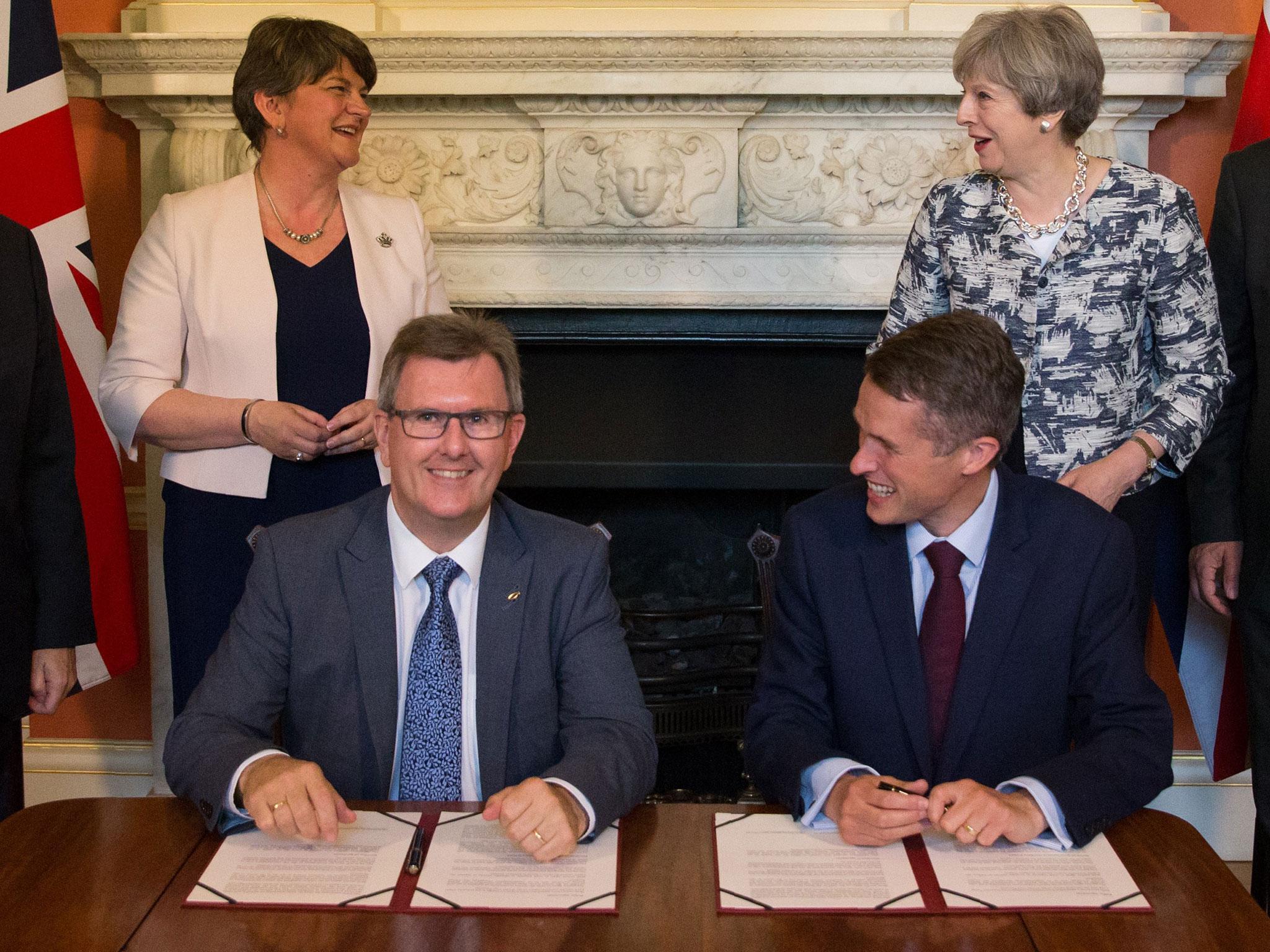State pension triple lock survives the Tory-DUP deal
When politics meets pensions someone is bound to lose

The confirmation this week that the triple lock on pensions will remain has been met by a surprising response. Irritation.
You might expect that the promise to ensure state pensions rise by the rate of inflation, wage growth or 2.5 per cent every year would be welcomed. It’s an assurance that today’s pensioners will continue to maintain their quality of life whatever happens out there in the real world.
Except that this is the real world. One in which, if the latest economics figures are to be believed, we’re heading for another recession. And that means a lack of cash for things like supporting those baby boomers already basking in the eternal sunshine of the final salary pension scheme.
But when you’ve dismissed your core supporters in an election campaign taken straight from the “What not to do guide to modern politics”, you have to claw them back somehow. And promising to keep a deal that secures their income in times of low average wages or inflation will do just that, even if it is only until 2022 and even if there’s no clear outcome or justification for doing so.
“This has to rank as one of the least surprising aspects of the deal,” says Tom McPhail, head of retirement policy at Hargreaves Lansdown.
“The Conservatives’ assumption they could win the election comfortably whilst withdrawing policy support from their core constituency of older voters back-fired painfully. The DUP position of retaining the triple lock and the winter fuel payment allows the Conservatives a welcome way out of this bind in the short-term.”
It’s good news for those who had feared the possibility of replacing the triple lock with a double one without the 2.5 per cent guarantee but sticking with a rise to match either wages or inflation. Not that this would make much difference to pensioners or the Treasury given the expectation for higher than target inflation in the immediate future.
But something has to give.
Long before the latest Westminster card shuffling got under way, the united message from the pensions industry was that the triple lock was an unsustainable arbitrary notion that risked depleting what little is likely to be left of the state pension for future generations.
“Political necessity has once again trumped long-term thinking when it comes to the state pension triple lock,” explains Tom Selby, senior analyst at AJ Bell.
Get a free fractional share worth up to £100.
Capital at risk.
Terms and conditions apply.
ADVERTISEMENT
Get a free fractional share worth up to £100.
Capital at risk.
Terms and conditions apply.
ADVERTISEMENT
“The policy has simply become a symbol for doing right by older people, and as a result there has been little serious debate over its purpose or sustainability.
“Indeed, moving to a double lock of earnings or inflation is unlikely to cost a lot less in the short-term – and could cost nothing at all if either remains above 2.5 per cent between now and 2022.
“The state pension system will come crashing down unless spending is reigned in, with estimates suggesting it will cost £30bn more in today’s terms in 50 years’ time unless reforms are introduced.
“This will involve either reducing the amount people receive, or increasing the state-pension age. Neither of these reforms will be popular but if politicians refuse to address this reality they will risk further piling the burden on future generations.”
McPhail adds: “There is widespread support for its abolition, however, from a political perspective now is clearly not the moment.
“A possible way through this impasse is to build consensus with the pensions industry and across the political spectrum, through the formation of a savings commission to explore the development of a joined up savings policy for the benefit of all ages across society.
“It is telling that David Gauke, now Secretary of State for Work and Pensions and former Treasury Minister, has already gone on record since the election, reiterating Conservative sentiment that the triple lock should be abandoned.”
But while the debate goes on, there’s the small matter of making sure those workers who will retire long after the triple lock is scrapped (and it will happen) have enough to live on.
“The state pension has always been a valuable, inflation-proofed income source but people are often very confused by what they will actually get,” notes Ed Monk, associate director for personal investing at Fidelity International.
“While the new state pension, introduced in April 2016, pays a flat rate of £159.55 as standard, there are some complicated rules for those who built up entitlement under the old system. Make sure you use the Government’s online service to see what you stand to get. If needs be, consider making up any shortfall in national insurance contributions so that you maximise your state pension.
“For those who can afford to do it, there has always been a compelling case for delaying when you take the state pension.”
That’s because the Government increases what you get the longer you delay claiming. The rate of that increase, however, has fallen. For those who reached state-pension age before April 2016 the rate of increase was 1 per cent for every five weeks delay – about 10.4 per cent a year. For those reaching state-pension age after that date the increase is only 1 per cent for every nine weeks – around 5.8 per cent a year.
Join our commenting forum
Join thought-provoking conversations, follow other Independent readers and see their replies
Comments
Bookmark popover
Removed from bookmarks